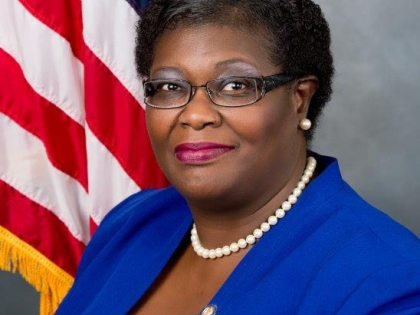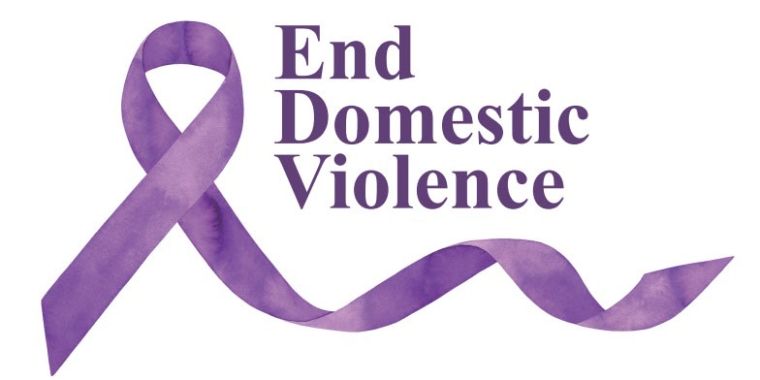
Senator Persaud on the Fiscal Year 2019-20 New York State Budget
April 4, 2019

"Since early January, I have been working with my colleagues in the Senate and Assembly to craft a state budget that serves all New Yorkers. The Legislature held a series of public hearings, where we received testimony from advocacy groups and organizations representing people and concerns from all over the state. Throughout the negotiation process, I sat at the Joint Human Services and Labor Budget Conference Committee table and served as an alternate member of the Joint Mental Hygiene Conference Committee. Our diligent work helped us advocate for funding and policies that will help the most vulnerable New Yorkers. Beyond my work on these committees, I participated in discussions pertaining to better funding for our public schools, crucial investments in the MTA and more programs for seniors and youth," Senator Persaud said. She continued, "This past Sunday morning, the Senate began voting on the agreed-upon $175 billion spending plan; and we remained in the Chamber until the final bill was passed at 3:19 a.m. on Monday, April 1. Despite facing significant fiscal challenges, the newly enacted budget tackles a number of New Yorkers’ highest priorities while remaining within the 2 percent state spending cap."
To conclude, Senator Persaud briefly expanded on items in the budget she believes are of particular significance. This high-level summary is provided below:
Notable Provisions of the Enacted FY 2019-20 NYS Budget
Funding for K-12 Schools
It is our responsibility to ensure that all New York students have access to a high-quality education no matter their zip code. The enacted budget provides the largest amount of school aid in state history with over a $1 billion increase to public education investment across New York State. Specifically, the enacted State Budget:
- Increases School Aid by over $1 billion, or 3.8%, over the 2018-2019 school year.
- Increases Foundation Aid by $618 million, or 3.5%, over the 2018-2019 school year. (This investment brings the total state education funding to $27.9 billion and allocates over 70% of funds to high need school districts.)
- Provides $342 million to fund expense-based aid fully and allows flexibility for Community Schools Foundation Aid Set-Aside funding.
- Provides $849 million for expanded pre-kindergarten grants, $15 million increase to provide programs for three- and four-year-olds.
- Extends mayoral accountability of New York City schools for three years, and includes reforms to enhance transparency and parental/community input in New York City school governance.
- Provides $34.4 million for school lunch programs and a $9 million increase to expand early college high schools.
- Creates a new $2.3 million program to cover the student share of reduced-price school meals.
- Provides $5.8 million for Advanced Placement test fee subsidies for low-income students.
Additionally, the Legislature provided the NYS Department of Education with $150,000 for a new initiative to ensure that individuals preparing for the state’s Social Work Exam can access culturally competent test preparation programs.
Investing in Higher Education
Tuition Assistance Program (TAP) - the enacted budget includes $1.2 billion for needs-based tuition assistance at public and private institutions.
City University of New York (CUNY)
- Community College Base Aid - in addition to the state contribution of $222.8 million, the Legislature added $6.02 million, a $100 per FTE increase.
- Child Care - the Legislature restored $902,000 to ensure continued operation of childcare centers.
- Funding restorations of $2.5 million for the Accelerated Study and Associate Program (ASAP), $225,200 for the College Discovery Program (CDP) and $50,000 for the CUNY School of Law Legal Resource Network.
- The budget included authorization for CUNY to set a reduced rate (or waive tuition) for coursework of dually enrolled high school or BOCES students.
State University of New York (SUNY)
- Community College Base Aid - in addition to the state contribution of $444.791 million, the Legislature added $12.02 million, a $100 per FTE increase.
- Child Care - the Legislature restored $1.1 million to ensure continued child care operations
- Funding restorations include: $6 million for Educational Opportunity Centers (EOC), $1 million for ATTAIN labs, $700,000 for Small Business Development Centers (SBDC), $600,000 for Graduate Diversity Fellowships, $500,000 for mental health tele-counseling and $150,000 for the Hispanic Leadership Institute.
- Similar to CUNY, the budget also included authorization for SUNY to set a reduced rate (or waive tuition) for coursework of dually enrolled high school or BOCES students.
Additionally, the Governor and Legislature enacted a new measure implementing a strong regulatory framework governing Student Loan Servicers, the private companies that collect student loan debt.
Caring for our Seniors
The enacted budget provides continued funding for vital services for our seniors, including:
$4,027,500 for grants and additional expenses for Naturally Occurring Retirement Communities (NORC) programs and $4,027,500 for Neighborhood Naturally Occurring Retirement Communities (NNORC) programs. The Legislature provided an additional $325,000 to support both programs. Further, the enacted budget includes language that raises the statutory funding cap on individual grants to classic NORCS from $200,000 to $300,000.
A number of programs and initiatives with a local impact were also funded, including the Jewish Community Council of Greater Coney Island, Live On New York, Services and Advocacy for Gay, Lesbian, Bisexual & Transgender Elders (SAGE), and Jewish Association for Services for the Aged (JASA).
Protecting Critical Health Funding & Programs
Quality health care is a basic right that all New Yorkers deserve. My colleagues and I worked to ensure that the State Budget provides essential funding for New Yorker’s health care needs and essential medical care providers. The enacted State Budget:
- Fully restores $550 million in proposed cuts to Medicaid. Brooklyn has a very large healthcare sector and is home to thousands of healthcare workers as well as the tens of thousands of people who receive healthcare through Medicaid. The proposed funding cut would have been devastating in the Borough and our district.
- Implements the federal Affordable Care Act and the New York Health Care Exchange into State law. I have sponsored a similar bill in the State Senate.
- Invests $100 million in the NYS Office of Alcoholism and Substance Abuse Services (OASAS) to better confront the opioid abuse crisis.
- Provides $2 million for the Substance Abuse Prevention & Intervention Specialists (SAPIS), a critical program serving New York City’s public schools.
- Will require health insurance companies to increase the length of time available for New Yorkers seeking in-patient treatment for substance abuse disorders.
- Will prohibit the charging of more than one copayment per day from members of large group policies for outpatient substance abuse treatment. Further, co-pays required by large group insurers for outpatient substance abuse treatment will be limited to the amount specified for primary care visits.
- Provides over $3.8 million for School-Based Health Clinics.
- Invests significant state funds for research and programs to combat diseases including Sickle Cell, Alzheimer's, Parkinson's, and Lupus.
- Lowers the statutory threshold for elevated lead levels from 10 micrograms per deciliter to 5. This protects everyone, but especially children as lead in paint and drinking water systems harms developing brains. The public health impacts are most seen in poor communities and communities of color.
Assisting New York’s Most Vulnerable
As Chair of the Senate Social Services Committee, I worked closely with the Committees on Children & Families, Labor and Veterans Affairs in both houses of the Legislature to deliver a budget that provides the most assistance to vulnerable communities possible in light of fiscal constraints in the state spending plan. Under the new state budget:
- Victims of domestic violence will no longer be required to pay for certain services, nor will they be required to apply for public assistance benefits as a condition of receiving protective and social services. The budget also includes funding for many domestic violence programs across the state.
- The Legislature authorized the Governor’s proposed $3 million Families First Transition Fund, to facilitate reconfiguration of the state’s foster care programs to comply with federal law - Family First Prevention Services Act.
- Cuts to NYC TANF Funding Restored. The Legislature reversed proposed budget language imposing a 10% cost-share upon the City of New York for Temporary Aid for Needy Families (TANF) expenditures, which would have cost the City more than $70 million. This funding is critical to ensure continued family assistance, various anti-poverty programs, job training, and employment readiness programs as well as services for children.
- Direct Support Professionals (DSPs) under the auspices of the Office of Mental Health (OMH), Office for People with Developmental Disabilities (OPWDD) and the Office of Alcoholism & Substance Abuse Services (OASAS) will receive a 2% pay increase on January 1, 2020. DSPs and clinical staff will receive an additional 2% increase in April 2020. I will continue to push for implementation of the Human Services Cost of Living Adjustment (COLA), which unfortunately we were not able to accomplish in this budget.
- Various TANF restorations including Advantage After School ($28 million from Governor + $5 million from Legislature), Advanced Technology Training and Information Networking (ATTAIN) - ($4 million), Welfare-to-Careers ($800,000), Career Pathways ($2.85 million), Wage Subsidy Program ($475,000), Fatherhood Initiative ($200,000), Wheels-to-Work ($144,000) and Child Care Facilitated Enrollment projects in NYC and Upstate (approximately $8.5 million).
- Funding of other human services and anti-poverty programs including: The Hope Program, Kinship Navigator, Refugee Resettlement agencies, Disability Advocacy Program (DAP), Settlement Houses, 2-1-1 Hotline, Met Council, Jewish Board of Family and Children’s Services, Helen Keller Services for the Blind, Junior Achievement, Displaced Homemakers, the YMCA Foundation, Boys & Girls Clubs, and more.
- Youth civics and educational opportunities (support programs) will continue to be delivered by the Citizens Committee for New York City and funding for YouthBuild, Teens for Food Justice and the NYPD Youth Explorers program is included in the enacted budget.
Justice Delivered
The enacted budget includes long-called for reforms to make New York State fairer and more just:
- Bail and Pretrial Detention Reform: the enacted budget will eliminate cash bail for misdemeanors and non-violent felonies. It will also ensure that no New Yorkers are incarcerated because of their inability to pay. Additionally, law enforcement officials will be required to issue a desk appearance ticket to most people charged with misdemeanors and Class E felonies.
- Ensuring the Right to a Speedy Trial: the enacted budget will ensure that defendants do not sit in jail waiting for a trial while dates keep getting postponed; by requiring that misdemeanors are resolved within 90 days and felonies within 180 days. The enacted budget includes legislation that requires courts to take a proactive role in advising litigants on how time will be charged and inquire into the government’s readiness to proceed to trial and require the government to file all suitable paperwork before the statement of readiness is accepted.
- Discovery Reform: the enacted budget includes reforms that will overhaul New York’s discovery process to require that both prosecutors and defendants share all information in their possession well in advance of trial. This legislation will also ensure that both victims and witnesses are protected from intimidation and other forms of coercion by providing prosecutors the ability to petition a court for a protective order.
Empowering New Yorkers To Stay In Their Homes
The enacted State Budget includes protections for tenants and dedicates new funding for foreclosure prevention by:
- Implementing the Lawful Source of Income Non-Discrimination Act of 2019 to fight housing discrimination. This protects New Yorkers who receive some form of lawful non-wage income or subsidies against discrimination in housing including domestic violence survivors, veterans, elderly, and disabled individuals.
- We are increasing funding for the Tenant Protection Unit to $5.5 million, a 22% increase over the current year.
- Investing $20 million in foreclosure prevention services to help New Yorkers stay in their homes.
Fixing and Funding the MTA
A portion of the 19th Senate District is a “transit desert”, underserved by our current system. Albany and City Hall are continuing discussions regarding broader reforms to MTA operations, governance and finances. All parties involved know that the MTA requires substantial funding to address much needed system-wide repairs and service improvements. This year’s budget provides $969.9 million in operating support and allocates $1.48 billion for capital projects. The legislation enacts a new tax on NYC homes valued higher than $2 million; with an additional tax levied on homes valued at $25 million or more to raise an additional $243 million.
Further, the final budget agreement also included “The Traffic Mobility Act”, which will implement a congestion charge on nearly all vehicles entering Manhattan below 60th Street. Proceeds from the congestion charge will support an estimated $15 billion in funding for the Subway, MTA Busses as well as the LIRR and Metro-North systems. To allow time for public comment and planning, the congestion charge will not go into effect until after 2020.
Addressing the Scourge of Gun Violence
In direct response to my legislation that would establish a Firearm Violence Research Institute, funding has been allocated to support this pioneering initiative. Further, nearly $1.3 million will be invested in Operation S.N.U.G. / Cure Violence NYC; $450,000 of which is dedicated to Brooklyn. The budget also provides funding for the establishment of S.N.U.G. in our neighboring Borough of Queens.
Protecting New York’s Environment And Natural Resources
The enacted budget supports efforts to protect New York State’s environment and natural resources by:
- Banning single-use plastic bags (with exemptions) and authorizing local governments to establish a 5-cent fee on paper bags. Because this policy can have a disproportionate impact on low and fixed income New Yorkers, the legislation intends to fund local efforts to provide reusable bags to those who need them. The majority of proceeds from the 5-cent fee on paper bags will be directed to the State’s Environmental Protection Fund (EPF).
- Allocating an additional $500 million, for a total of $3 billion, for clean water infrastructure projects such as improvements to solid waste management facilities, inter-municipal infrastructure projects, projects to address emerging contaminants, water quality improvement projects, concentrated animal feeding operations, septic system replacement, and projects to address issues on Long Island.
- Providing a historic level of funding for the Environmental Protection Fund of $300 million.
Restoring Trust In State Government And Reforming The Electoral System
Building upon the historic election and campaign finance reform package approved by the Senate earlier this year, the enacted budget includes new measures to make voting easier as well as encourage participation in the Democratic process by:
- Allocating $10 million in funding for early voting and $14.5 million in funding for e-poll books.
- Creating a public financing commission with binding power to implement public campaign financing for legislative and statewide offices.
- Findings are due December 1, 2019, and will be binding unless modified by law within 20 days.
- Expanding upstate voting hours to begin at 6:00 AM and end at 9:00 PM, to ensure all New Yorkers have uniform voting hours.
- Protecting grassroots and volunteer-run organizations from being forced to register as lobbyists.
- Requiring three hours of paid time off so New Yorkers will be better able to vote on Election Day.
Supporting New York Businesses
The budget includes investments to assist New York businesses to grow, create jobs and be successful throughout the state. It is especially committed to encouraging the continued growth of Minority and Women-Owned businesses. The enacted State Budget includes:
- Allocating $365,000 for the Minority and Women-Owned Business Development and Lending Program.
- Funding support for the Brooklyn Chamber of Commerce.
- It is investing $4 million for the Workforce Development Institute.
- Major investments to steer state and local resources to community banks and credit unions, which will help provide additional lending access to underserved communities.
Stronger Labor Protections
Privacy of Unionized Public Employees. This bill prohibits releasing personal data of public employees that would, in turn, be used by outside organizations to harass and coerce members into leaving their respective union.

